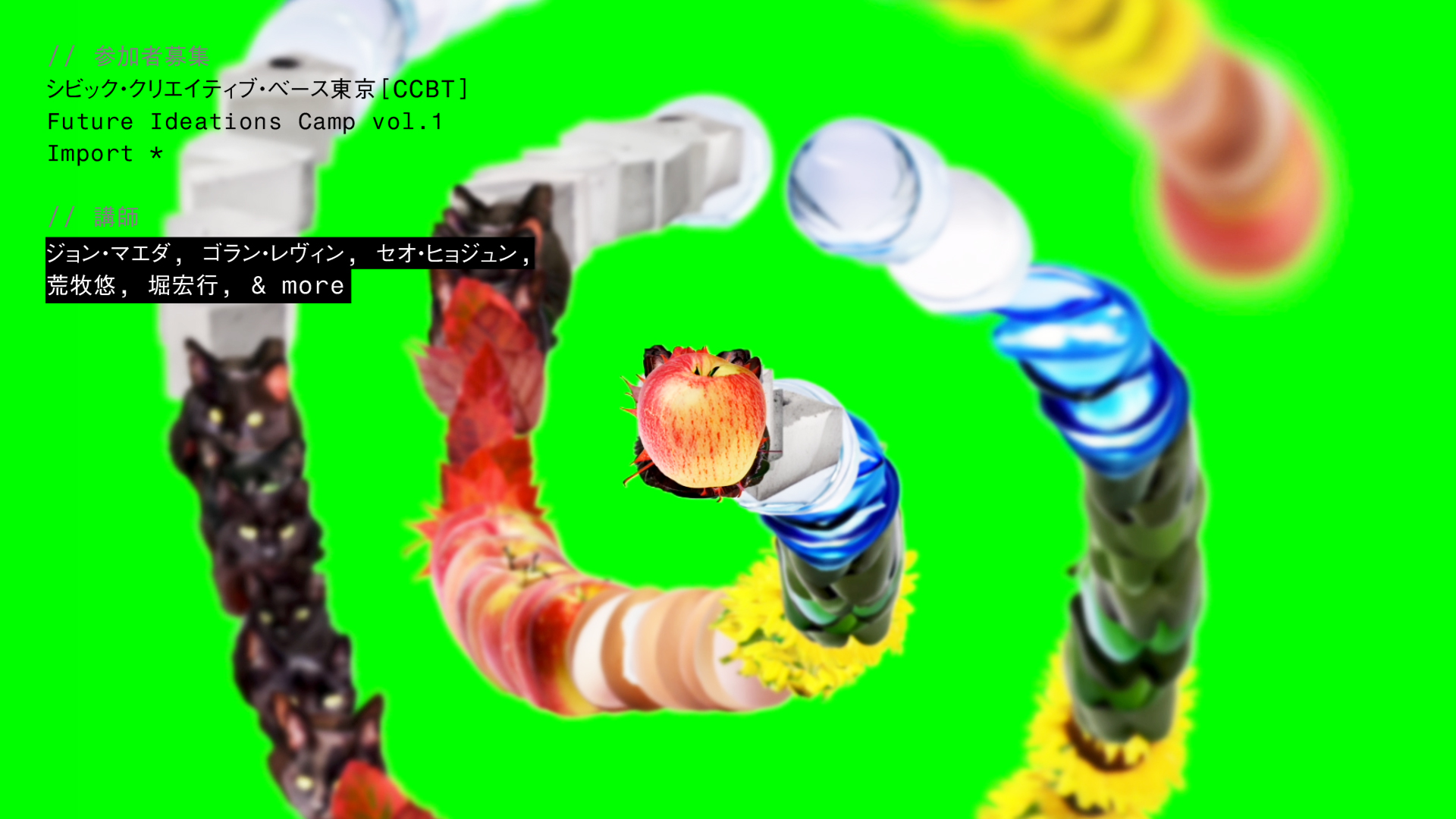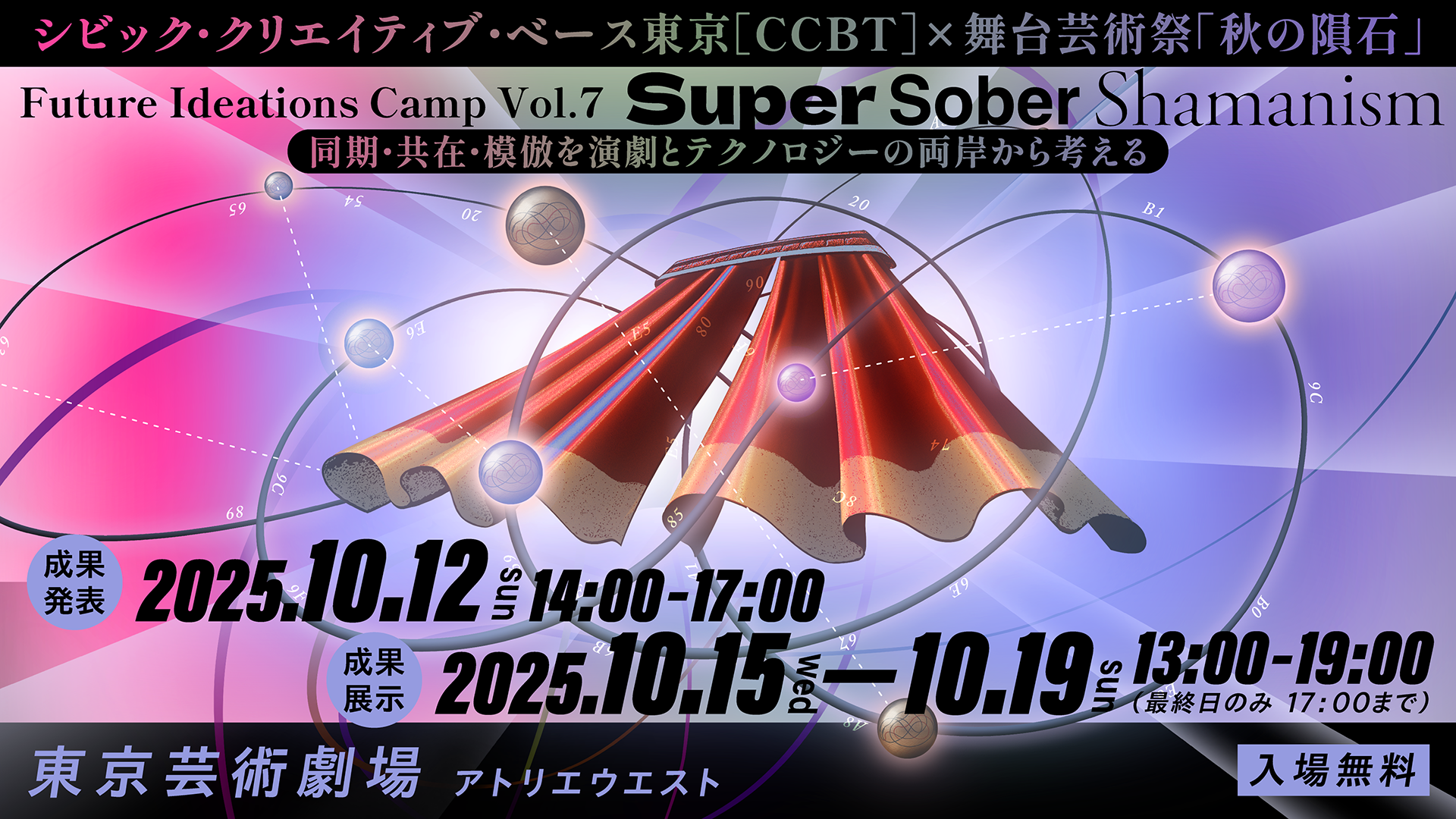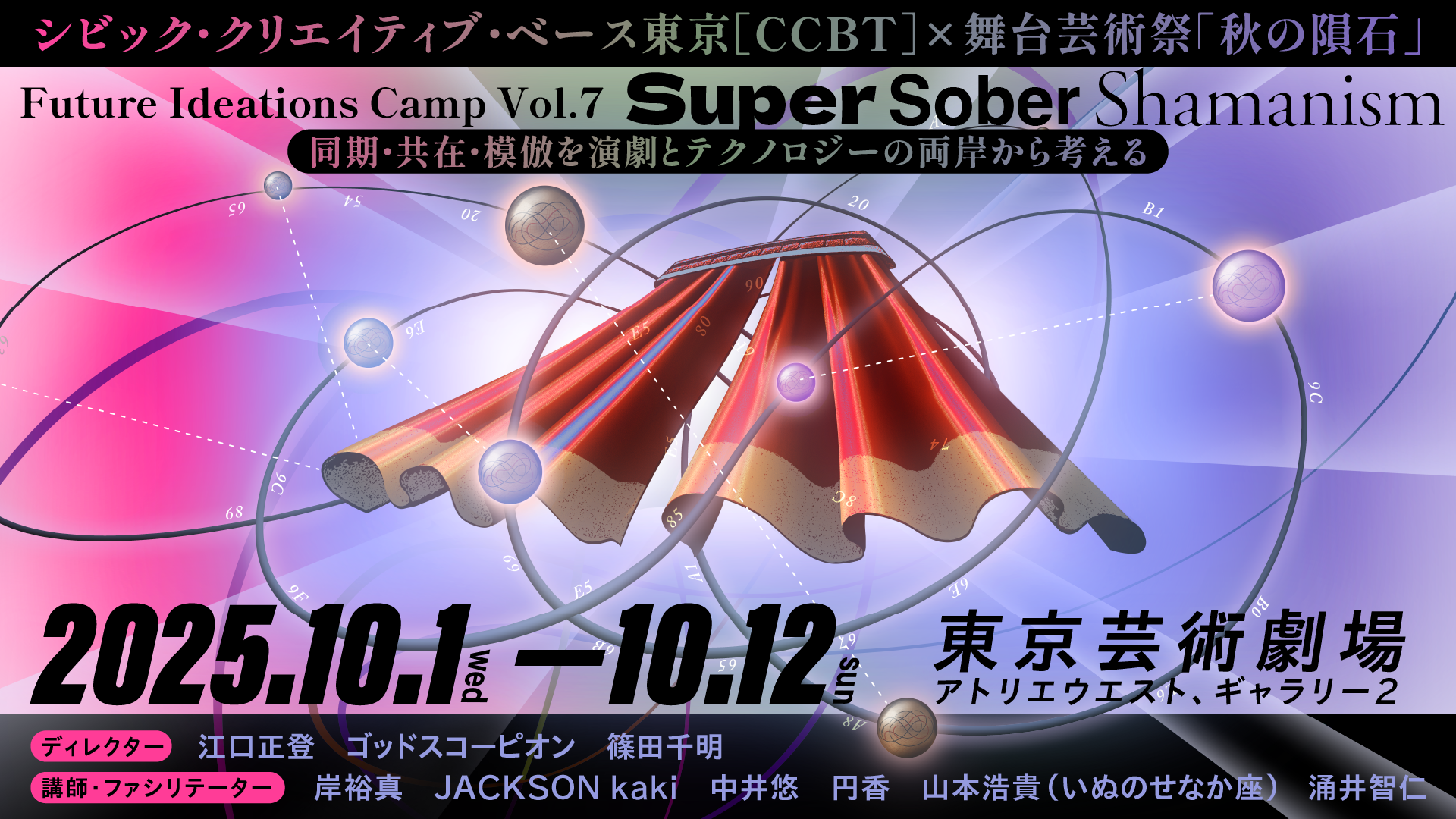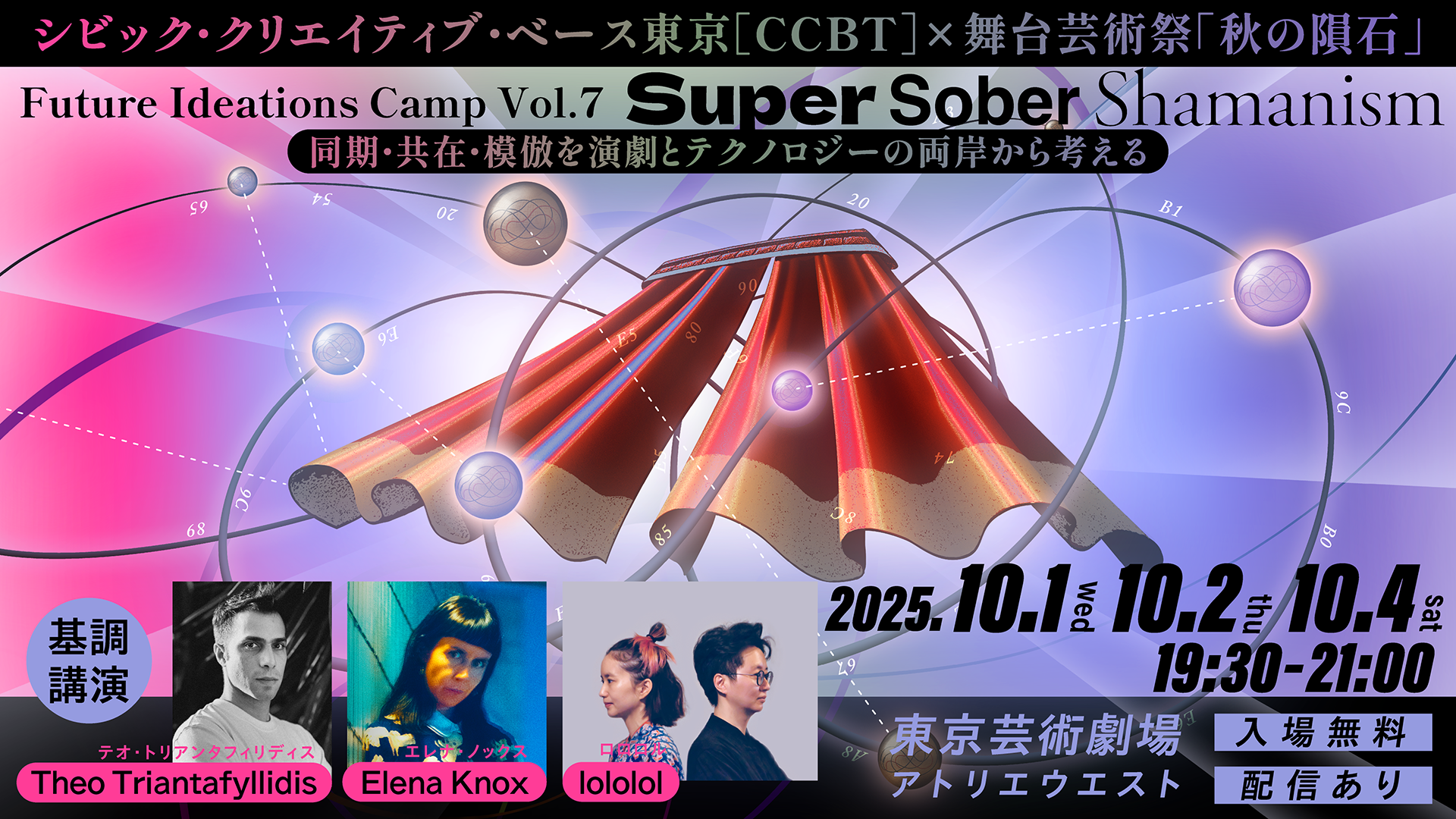Five-day intensive workshop utilizing computational art and design to explore future approaches to parenting and play, community symbol and product development, and programming education
Civic Creative Base Tokyo [CCBT] will hold the latest edition of “Future Ideations Camp,” an intensive workshop camp program featuring several days of talks on approaches to art and technology, workshops for developing skill sets, and collaborative creativity through group work.
Rooted firmly in the technology and social challenges of today, the camp combines aspects of both debate and co-creation through making things with shared data (which represents the frontline of innovation and trends in art and technology since the 2000s), building a community via collaborative creativity, and seeking out fresh public values. Participants have included corporations and cultural institutions, graduate students, people engaged in similar aims and projects in their work, and artists. With a curriculum involving twenty selected participants, the program features talks and exhibits open to the general public, providing a wide-ranging showcase of new artistic and cultural currents.
The first camp held at CCBT is a five-day intensive workshop utilizing computational art and design to explore future approaches to parenting and play, community symbol and product development, and programming education. Design approaches that make use of computer programs are already extensively applied in such fields as architecture (metaverse architecture), data simulation, inclusive design, marketing, generative art (NFT art), and interactive art. Aiming to provide an opportunity for learning foundational concepts related to computer-based design techniques and algorithmic thinking, and importing these into society through creative collaboration with fellow participants and instructors from around the world, the event will test out applications for a wide range of fields.
Program Information
Future Ideations Camp vol.1: Import *
Dates: February 19, Sunday- February 23, Thursday, 2023, 11:00–18:00 (5 days)
Public presentations: February 24, Friday–February 28, Tuesday, 2023
* Keynote speeches and presentations will also be open to the public during the program. Details will be announced on the CCBT website at a later date.
Venue: Civic Creative Base Tokyo [CCBT]
Organizers: Tokyo Metropolitan Government, Tokyo Metropolitan Foundation for History and Culture
Instructors / Facilitators:
– John Maeda (Technologist / Vice President, Design and Artificial Intelligence, Microsoft) * Pre-lecture before the program (scheduled for Saturday, February 12(JST))
– Golan Levin (Artist, Engineer, Researcher, Educator)
– Toyoda Keisuke (Project Professor at the Institute of Industrial Science (IIS), The University of Tokyo / NOIZ (architecture design) / gluon (smart city consulting) )
– Seo Hyo-jung (Artist / Professor, Samsung Art & Design Institute)
– Aida Daiya (Museum Educator)
– Aramaki Haruka (Artist)
– Oshima Ryo (Programmer, Interaction Designer)
– Hori Hiroyuki (Creative Director, Technical Director, Programmer at PAN Co., Ltd)
– Inafuku Takanobu (programmer)
– Kimura Yusaku (Technical Director, Engineer)
– Masaki Ray (Graphic designer)
– MATHRAX (Kuze Shozo + Sakamoto Mariko) (Artist, Engineer, Designer)
Program Directors:
Hagiwara Shunya (Wed Designer, Programmer)
Hayashi Yosuke (UI designer, Programmer)
Applications
Application Period: Friday, January 20th, 2023–Sunday, February 5th, 2023.
Participant Numbers: Max. 20 external participants
Participation Requirements:
– Be able to participate in the whole program during the session
– Have a proven track record of research or creative activities
– Be able to apply the content of the workshop to their own future activities
– Be enthusiastic about the theme of the workshop
– Have adequate fluency in English
Target Participants:
– Those interested in computational art and design
– Those working creatively with programming and seeking opportunities to present their work
– Those working creatively with graphic design, music, etc., and who want to try working with programming in the future
– Programmers who want to try working creatively with artists and designers
– Those working in new project development in digital fields
– Those working or interested in programming education
– Those interested in digital transformation ideas and mindsets
– Researchers involved with information design, web design, programming, information education, and information engineering
Selection Criteria:
In the event of applications exceeding capacity, the organizer will select the participants based on the application details.
Notification of Application Results:
Applicants will be notified of the results of the selection process via email on February 7, 2023.
Application Process:
Please apply using the application form.
Alternatively, please send an email (ccbt@rekibun.or.jp) with “Future Ideations Camp Application” in the subject line.
Please include links to your portfolio, videos, website, GitHub page, and other relevant materials.
– Name
– Birth Date
– Nationality /Contact information (Office or current address)
– Contact information (Email Address)
– Occupation and Affiliation
– Area of Expertise;
(Art, Design, Product design, New project development in digital fields, Engineering, Architect /interior design, Education, others)
– Why do you want to take part in this event? (approx. 200 words)
– Please let us know of any further accessibility needs that you may require.
(Examples: finger Braille interpretation, tactile sign language interpretation)
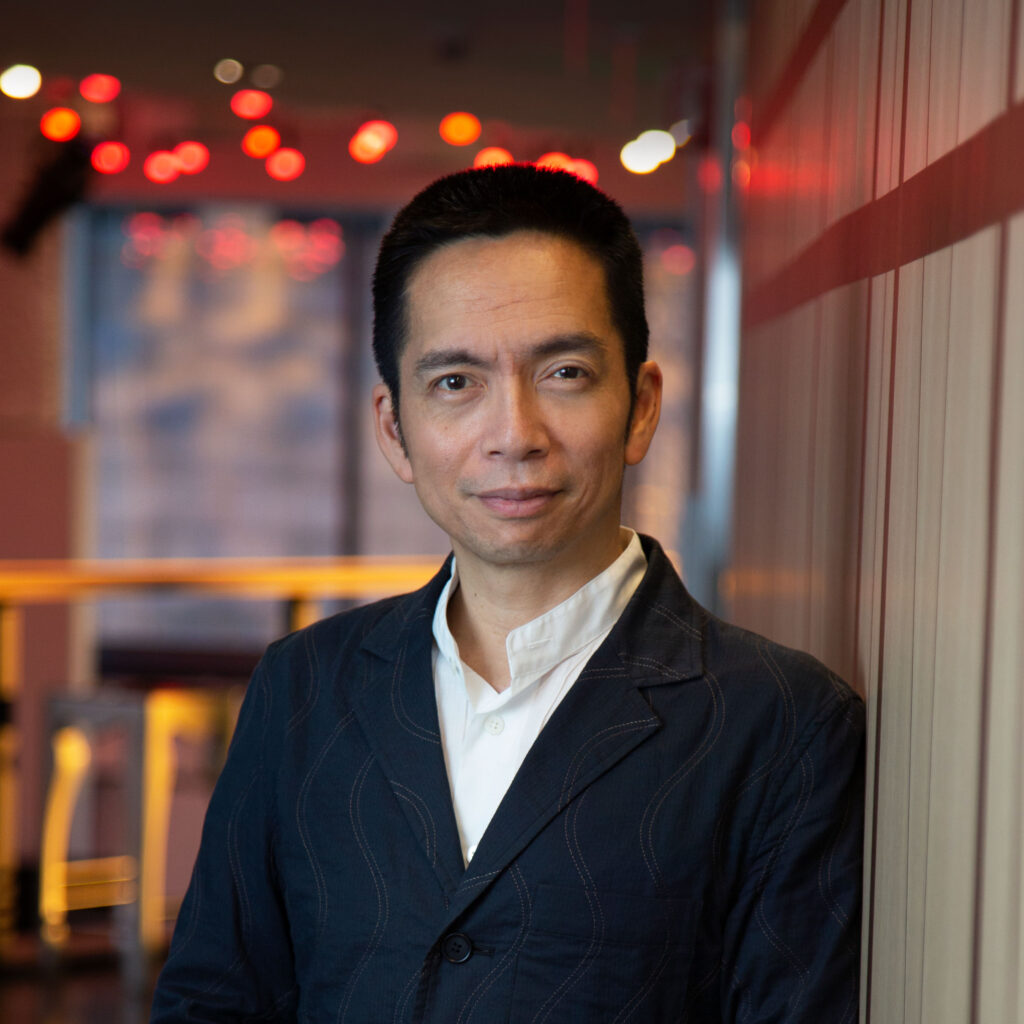
John Maeda
Technologist / Vice President, Design and Artificial Intelligence, Microsoft
John Maeda (b. 1966) is an American technologist and product experience leader with a passion for resilience and renewal. He is the early catalyst for generative art and computational design for commercial applications across Web2 and Web3 and is known for launching the STEM to STEAM movement in the U.S. Maeda is the first recipient of White House’s National Design Award for algorithmically-generated visualizations informed by data + AI, and is a noted online influencer and investor in diverse startups. He is the author of five books including a gentle introduction to AI/ML How To Speak Machine and the tech bestseller of 2006 Laws of Simplicity. As Wired Magazine described, “Maeda is to design what Warren Buffett is to finance.”
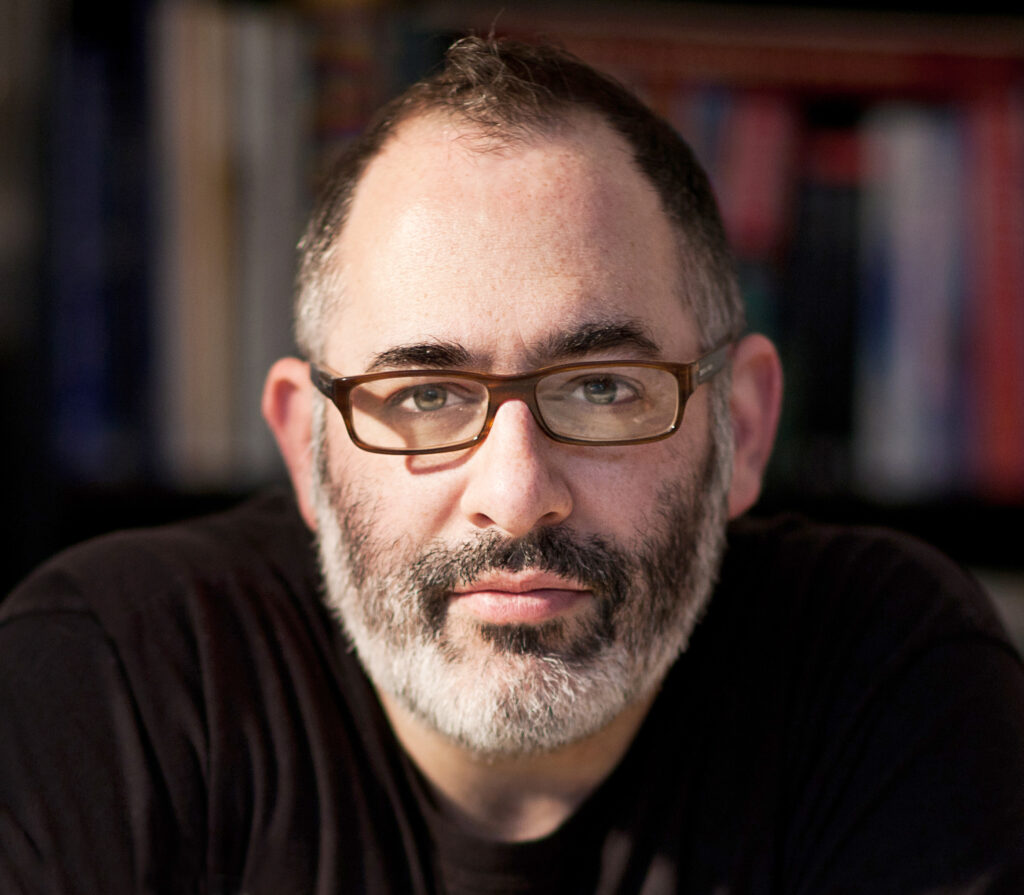
Golan Levin
Artist, Engineer, Researcher, Educator
Golan Levin (b. 1972) explores new intersections of machine code, visual culture, and critical making. Currently Professor of Electronic Art in the School of Art at Carnegie Mellon University, his pedagogy is concerned with reclaiming computation as a medium of personal expression. Levin has been embedded within technological research environments such as the MIT Media Laboratory and Ars Electronica Futurelab for over 30 years and recently co-authored Code as Creative Medium (MIT Press, 2021). Levin’s work combines the whimsical, the provocative, and the sublime in an eclectic variety of online, installation, and performance media. He applies creative twists to digital technologies that highlight our relationship with machines, expand the vocabulary of human action, and awaken participants to their potential as creative actors.
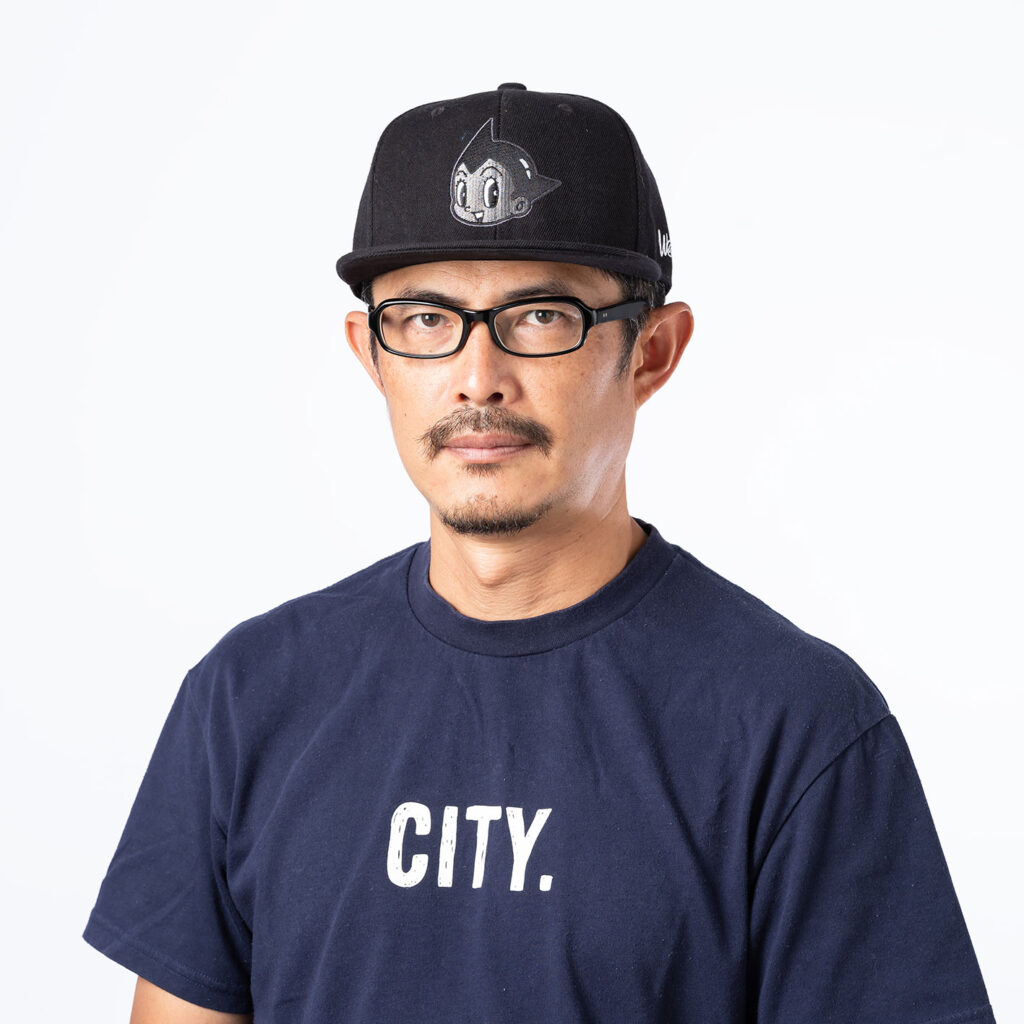
Toyoda Keisuke
Project Professor at the Institute of Industrial Science (IIS), The University of Tokyo / NOIZ (architecture design) / gluon (smart city consulting)
Born in 1972, Chiba, Japan. The University of Tokyo, BA, Columbia University GSAPP, MSArch. Keisuke Toyoda has architectural professional work experiences at Tadao Ando Architect & Associates (1996- 2000), SHoP Architects (2002-2006, New York). He founded NOIZ with Jia-Shuan Tsai in 2007, based in both Tokyo and Taipei. In 2017 Keisuke Toyoda co-founded gluon with Mitsuhiro Kanada, a consulting and advisory firm about smart city and Common Ground. He served as a directing advisor for EXPO 2025 OSAKA venue design for bidding (2017-2018). He founded and now serves as a vice chair for the Architectural Informatics Society (2020-) and advisor for Common Ground Living Lab in Osaka (2020-). Toyoda has joined the Institute of Industrial Science, The University of Tokyo as a Visiting Professor in 2020, then promoted to a Project Professor and co-founded the Interspace Research Center (IRC) in October, 2021.
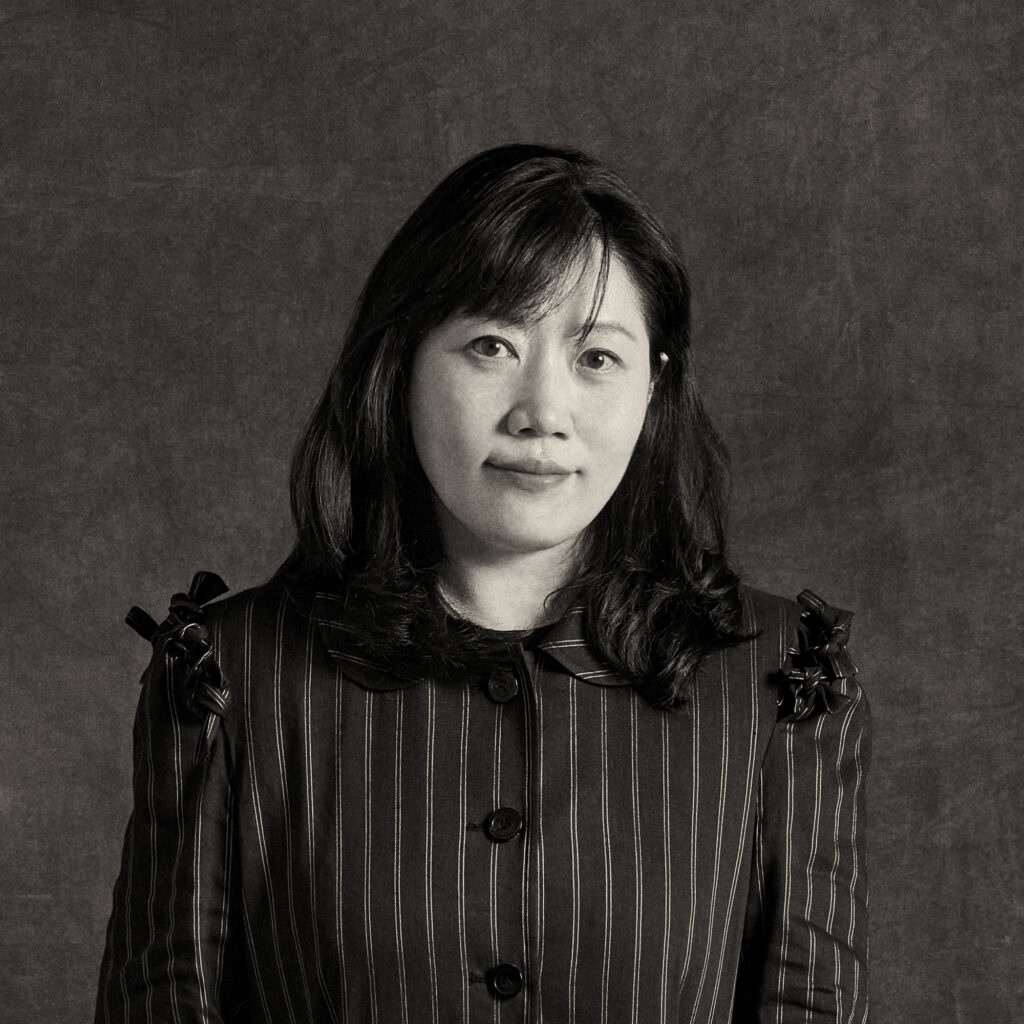
Seo Hyo-jung
Artist / Professor, Samsung Art & Design Institute
Seo Hyo-jung creates installation and performance pieces that aim to provide new perspectives on daily life by blending media technology with common objects that we encounter in our surroundings. Her interest in media literacy education drives her to explore the various possibilities of coding through Creative Computation classes and continues to work on various projects in this field. Recently, she has been dedicating her main focus on generative art, an art form that uses coded algorithms to generate images. This approach allows her to develop unique and dynamic visual forms that can evoke different emotions and reactions from the audience.
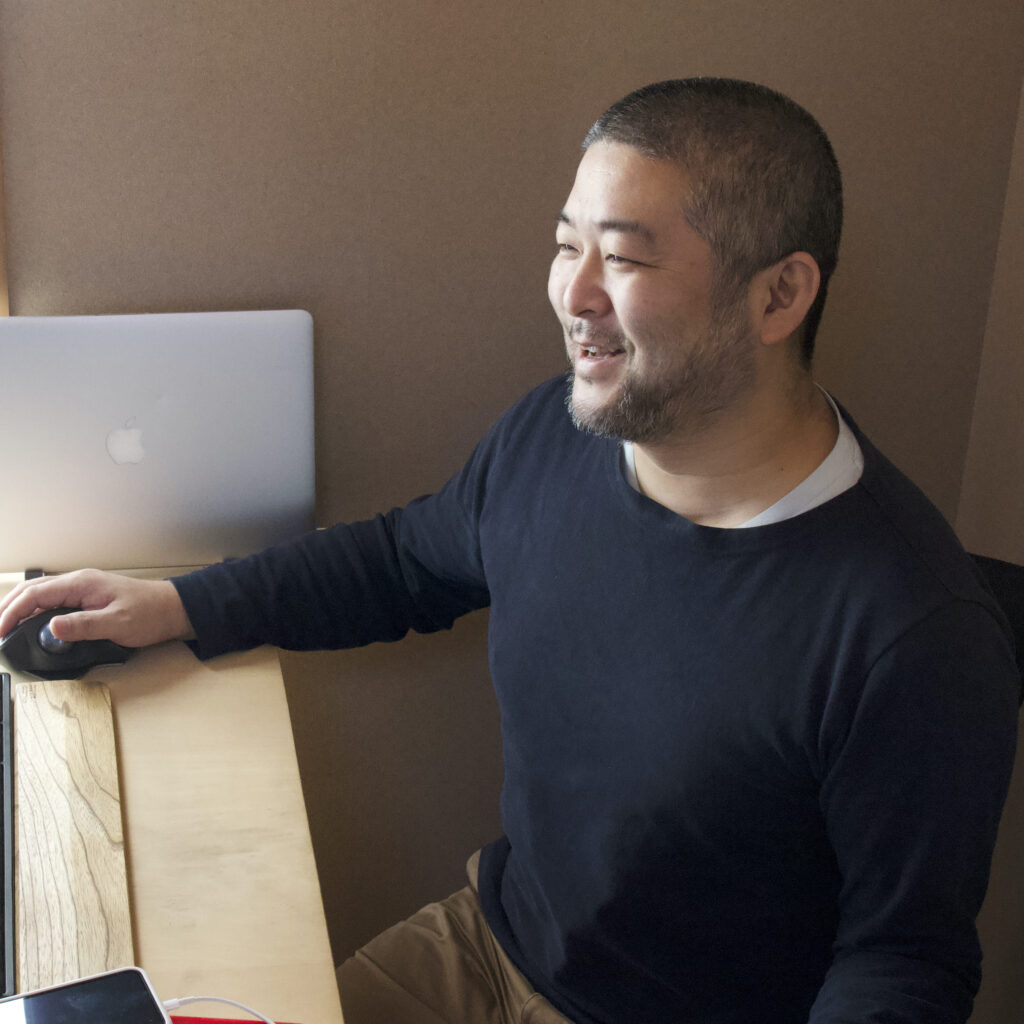
Aida Daiya
Museum Educator
Aida Daiya was born in Tokyo in 1976. He completed his studies at the Institute of Advanced Media Arts and Sciences (IAMAS), and worked at the Yamaguchi Center for Arts and Media (YCAM), an art institution with a focus on media art, from 2003 to 2014, where he was responsible for education and outreach, namely the planning and operation of film screenings, community participation programs, media workshops, and outdoor installations. His work at the YCAM earned him the Kids Design Award Grand Prize, Good Design Award, and Jury Selections for the Media Arts Festival Award. In 2013 Aida joined the 13-member, seven-nation curatorial team for Media/Art Kitchen, a media art exhibition—organized by the Japan Foundation to mark the 40th anniversary of ASEAN—Japan friendship and cooperation—that toured Japan and Southeast Asia. For five years, since 2014, he held the position of Project Assistant Professor, teaching workshop design for the Graduate Program for Social ICT Global Creative Leaders at theUniversity of Tokyo. In Dec. of 2019, Aida comeback to YACM as Artistic Director.
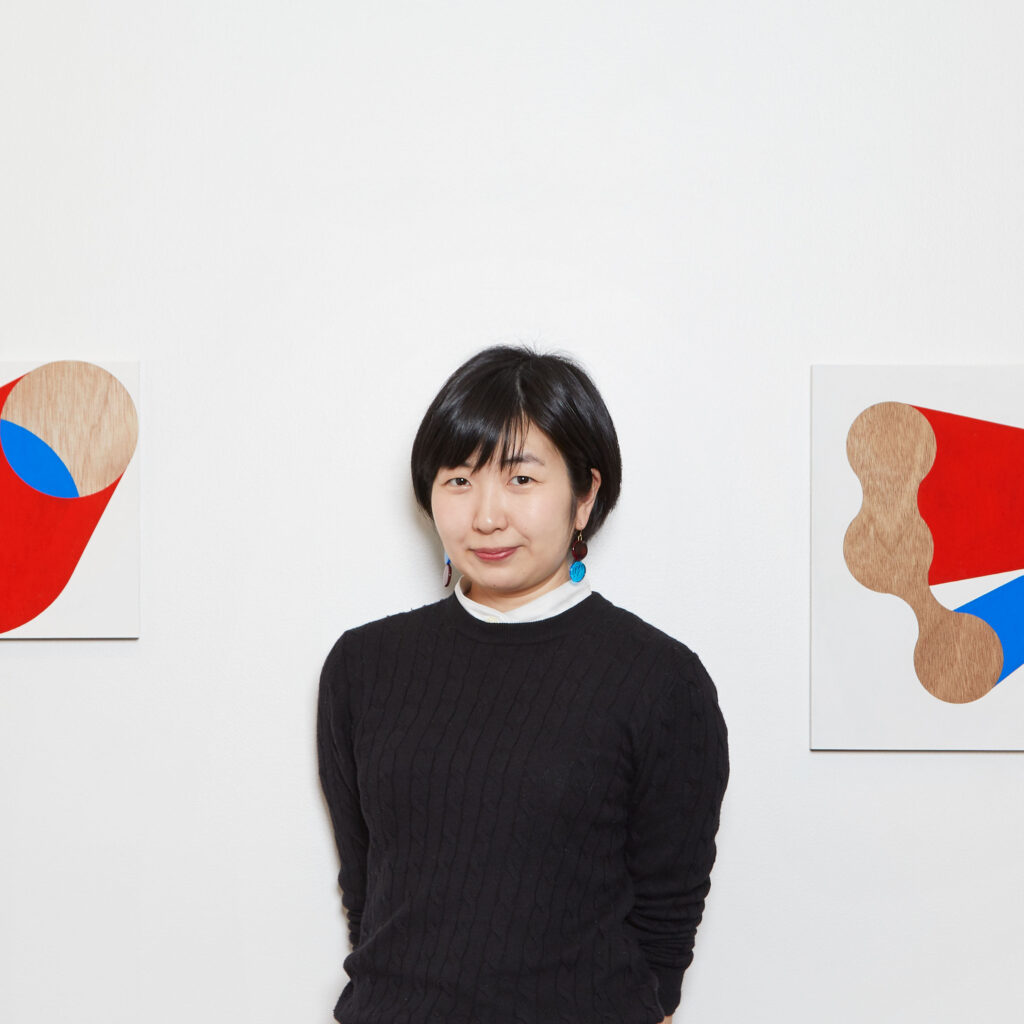
Aramaki Haruka
Artist
Aramaki Haruka was born in Kanagawa and graduated from the Keio University Graduate School of Media and Governance. With a focus on structures, mechanisms, and human cognition, she employs a wide range of mediums to create sculptural works that are both kinetic and static. Her major exhibitions include Measuring: This much, That much, How much? (2015, 21_21 Design Sight), Design Anatomy: A method for seeing the world through familiar objects (2016, 21_21 Design Sight), and Shapes and Figures (2017, Spiral). Solo exhibitions include Ao to Aka (Blue and Red) (2018, Hikarie 8/ aiiiima) and Structure (2021, Hikarie 8/ aiiiima).
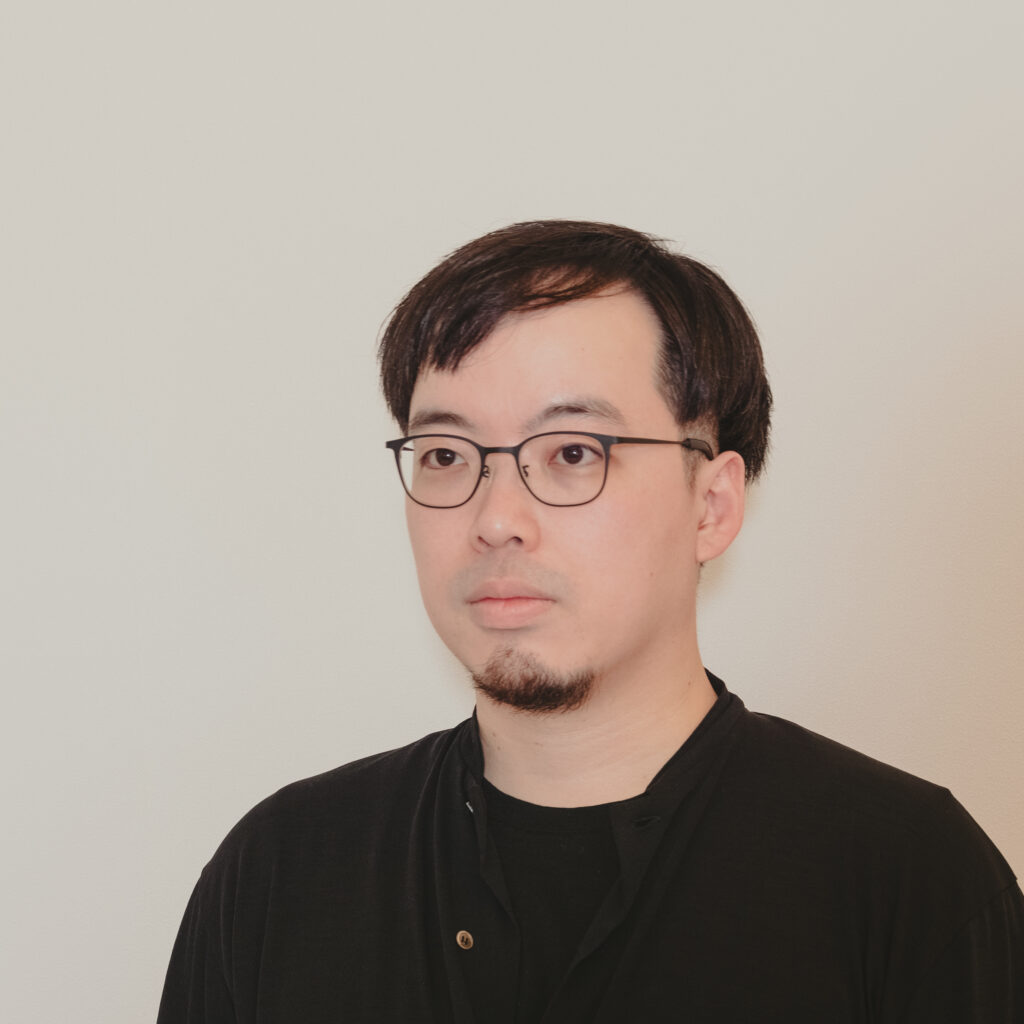
Oshima Ryo
Programmer, Interaction Designer
Oshima Ryo, born in 1986, is a programmer and interaction designer based in Tokyo. He has graduated from the Graduate School of Media and Governance at Keio University. His main area of interest is in designing problems and expressions that draw out human perceptual abilities. He has authored “Mathematics That Makes You Want to Solve It” (co-authored, published by Iwanami Shoten in 2021), and worked on projects such as the “YCAM Wayfinding Signage” system design (2019), “Comparing Information” video production (at “Measuring: This much, That much, How much?” at 21_21 DESIGN SIGHT, 2015), “Putting Finger” Exhibition experimental device production (ggg 2014), among others. He has received the D&AD Yellow Pencil award (2012) and has been Certified as genius programmer / super creator certification from Information Promotion Agency Japan (2011).
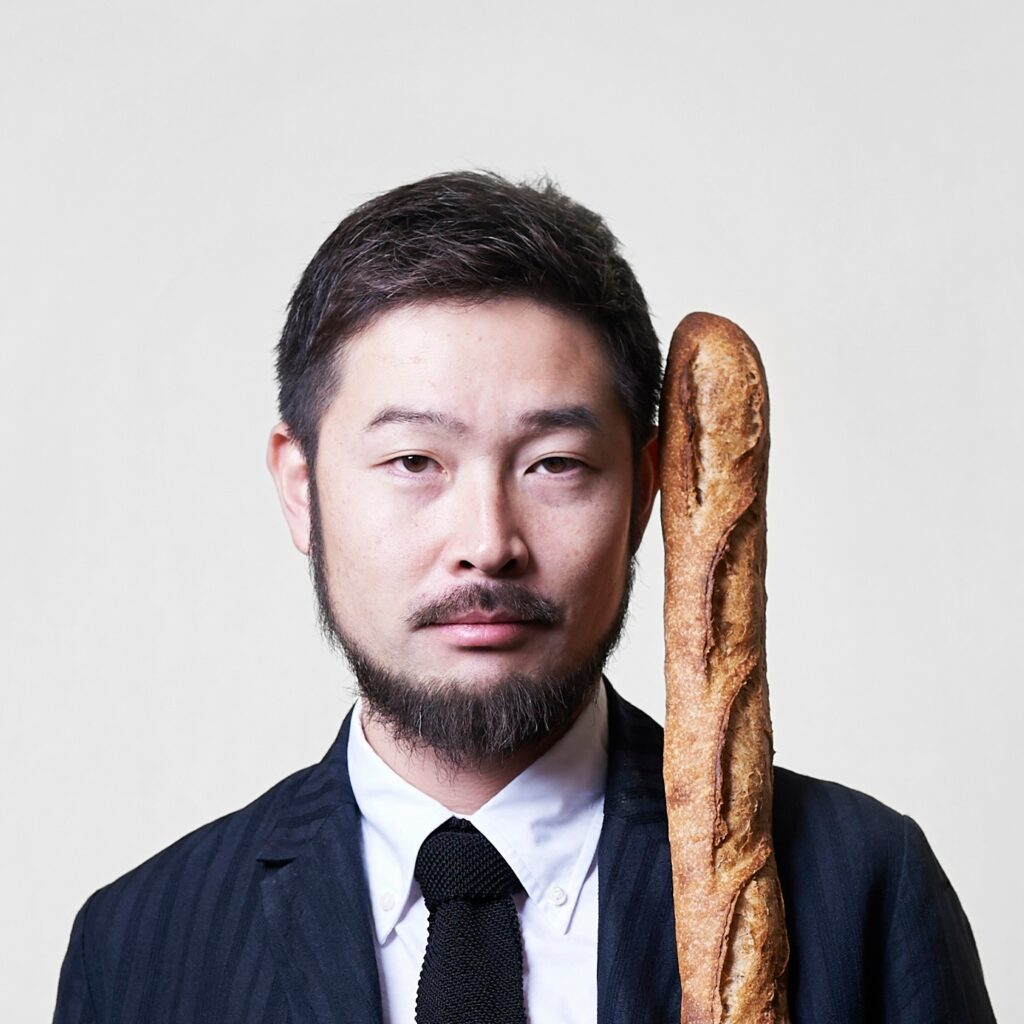
Hori Hiroyuki
Programmer, Technical Director / Founder, PAN. CO., LTD
Hori was born in Nagasaki, Japan in 1978. After studying film criticism in university, he began working with computer programming as a means and material for artistic expression. In 2008, he graduated from the International Academy of Media Arts and Sciences (IAMAS), where he worked on audiovisual productions based on programming techniques. From 2008 to 2016, Hori worked as a programmer and technical director at Raizomatiks and, in 2017, founded Pan Co., Ltd. Hori has worked in a wide range of fields from interactive installation productions, stage productions for live performances, music video productions, new product development, and R&D projects for major manufacturers. He served as the Japanese representative jury member for D&AD in Digital Design in 2018, and also has been the Head of Technology at Dentsu Craft Tokyo since 2021.
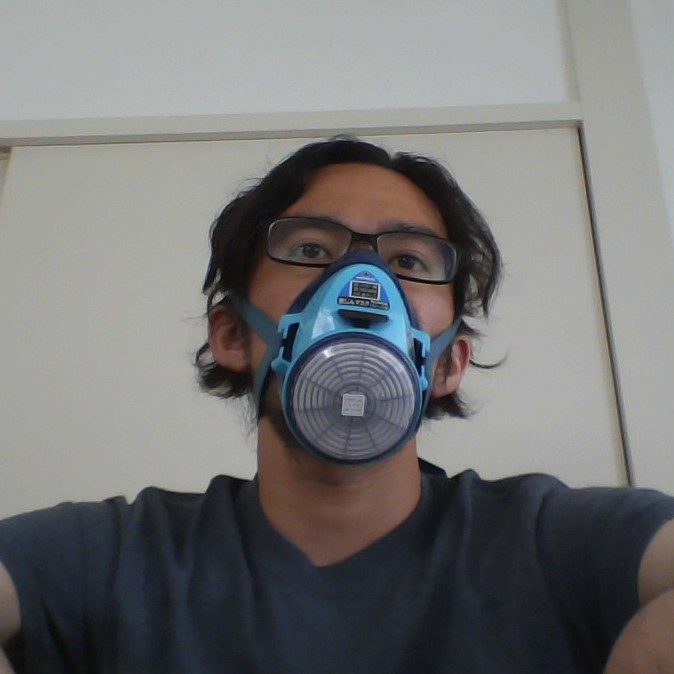
Inafuku Takanobu
Programmer
Born in Tokyo in 1984, Inafuku Takanobu completed graduate studies in information design at Tama Art University. After working for a design firm and a period as a freelancer, he joined HAUS as a director. In addition to creating interactive exhibits for commercial and public facilities and providing technical production support for artists in the contemporary art and media art fields, Inafuku makes installations that deal materially and thematically with technologies related to computers.
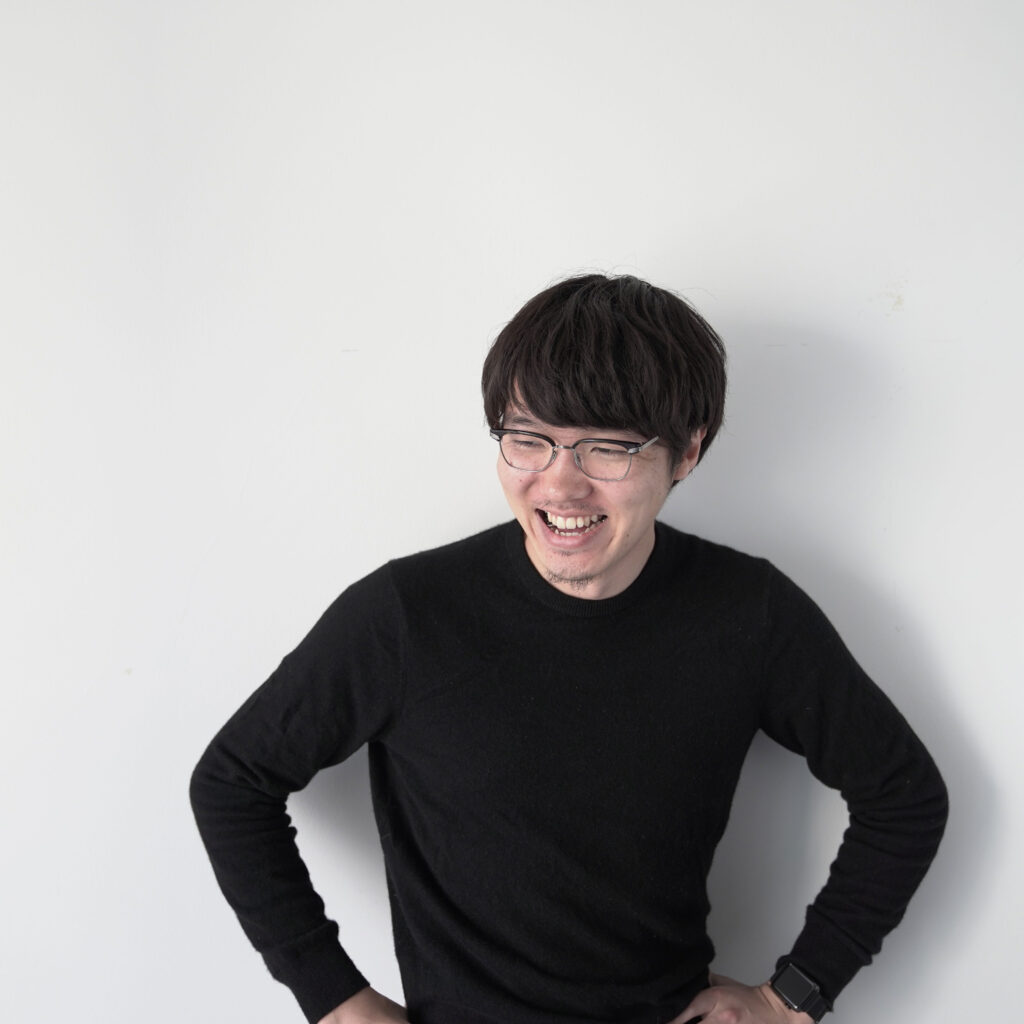
Kimura Yusaku
Technical Director, Engineer
Kimura Yusaku (Born 1991) is a technical director and engineer whose strengths lie in the intersection of hardware and software development. His versatility and wide range of knowledge in both comes from his previous experience working at a design firm, which led him to join CEKAI in 2022. He engages in the direction and development of exhibition installations and utilizes his skills in product prototyping and web development. His work has received numerous awards such as the Jury Selection for the Japan Media Arts Festival and the Semi-Asahi Advertising Award. Yusaku holds a Bachelor’s degree from Keio University, Faculty of Environment and Information Studies and a Master’s from Tokyo University of the Arts, Graduate School of Film and New Media.
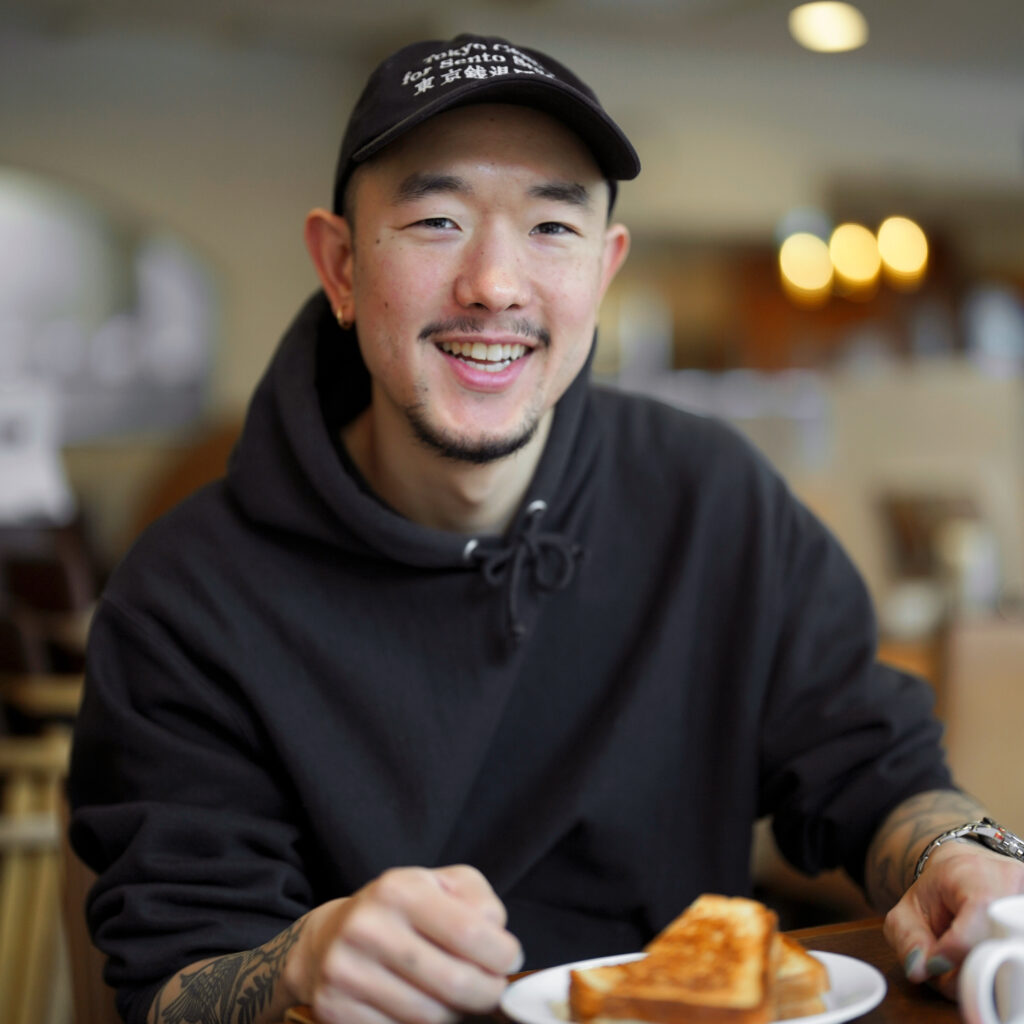
Masaki Ray
Graphic designer
Masaki Ray (b.1990 New York) is a Japanese-American graphic designer living and working in Tokyo since 2017. He studied illustration at Parsons School of Design, type design at The Cooper Union, and is currently pursuing an MFA in graphic design at the Vermont College of Fine Arts. In 2017, he moved to Tokyo and worked under Rikako Nagashima as well as other design agencies before starting Studio RAN in 2022. In 2021, Ray wrote and published Why is the salaryman carrying a surfboard?, a bilingual book about the history of institutional white supremacy and Westernization in the Japanese design industry.
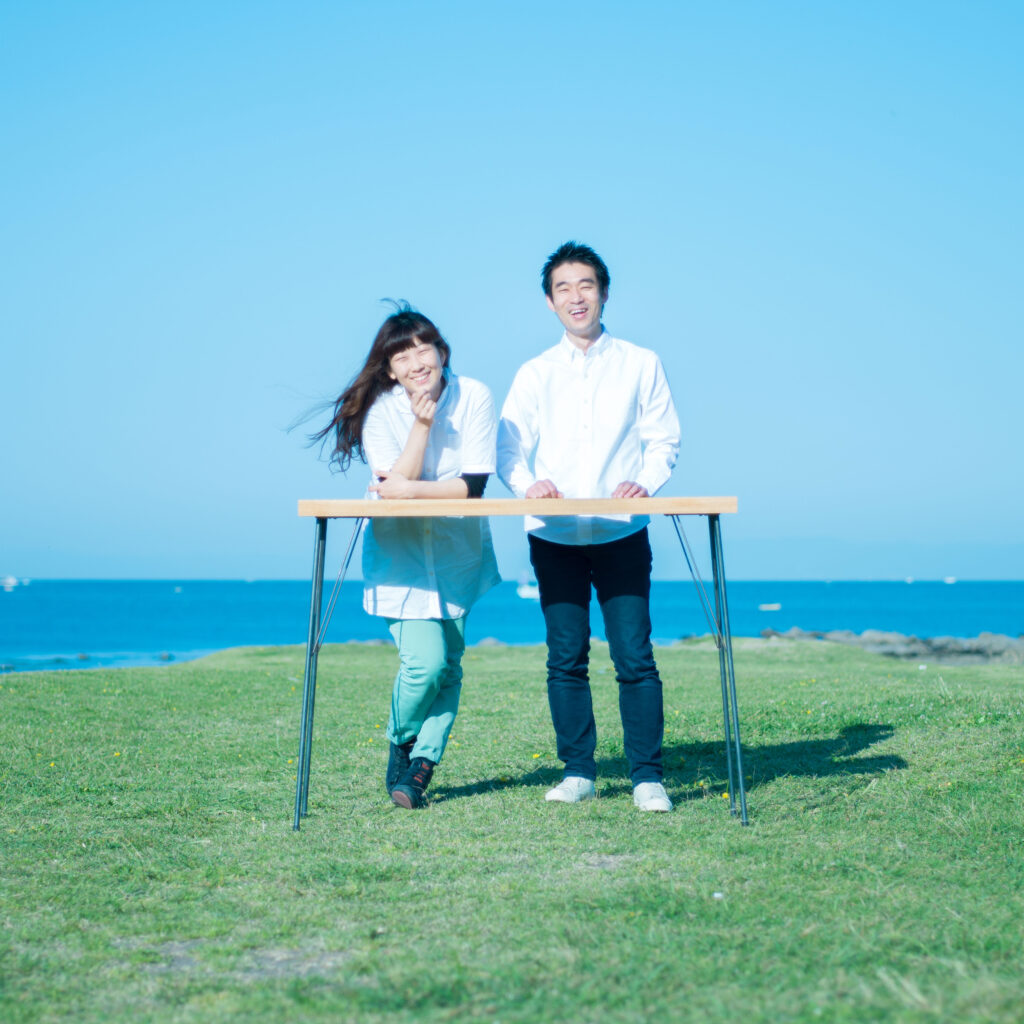
MATHRAX (Kuze Shozo + Sakamoto Mariko)
Artist, Engineer, Designer
Comprising Kuze Shozo and Sakamoto Mariko, MATHRAX creates installations and sculptural works using natural elements and materials like electricity, light, sound, smell, wood, and stone. With a focus on the phenomena that arise between digital data and human perception, its work examines the process whereby people make new forms of communication with others. MATHRAX also provides art direction for exhibitions and technical support for artists, gives lectures at universities, and holds accessible electronics art and crafts workshops. Its recent solo exhibitions include Before Light Reveals (Toyonaka Performing Arts Center, 2022).
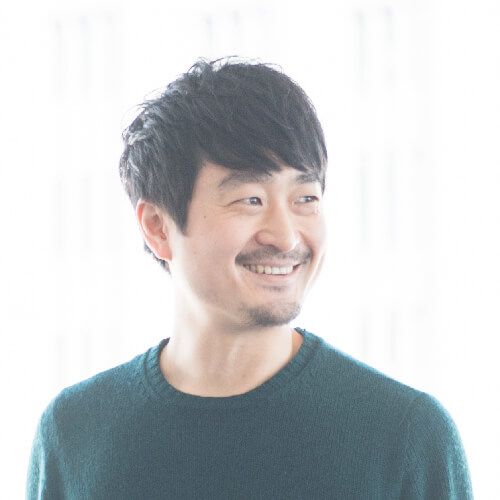
Hagiwara Shunya
Web Designer, Programmer
Hagiwara Shunya is a web designer and programmer with interdisciplinary expertise in programming and design. After working for Semitransparent Design, in 2012 he set up his own business. He’s heavily involved in production-related work such as planning, conceptualization, direction, implementation, design, and operational work primarily in the areas of web design and digital art. Hagiwara served as a part-time lecturer at Tama art university since 2015, and received Japan Media Arts Festival Award as a member of IDPW.org. He is also a member of the organizing committee of the book event Trans Books.
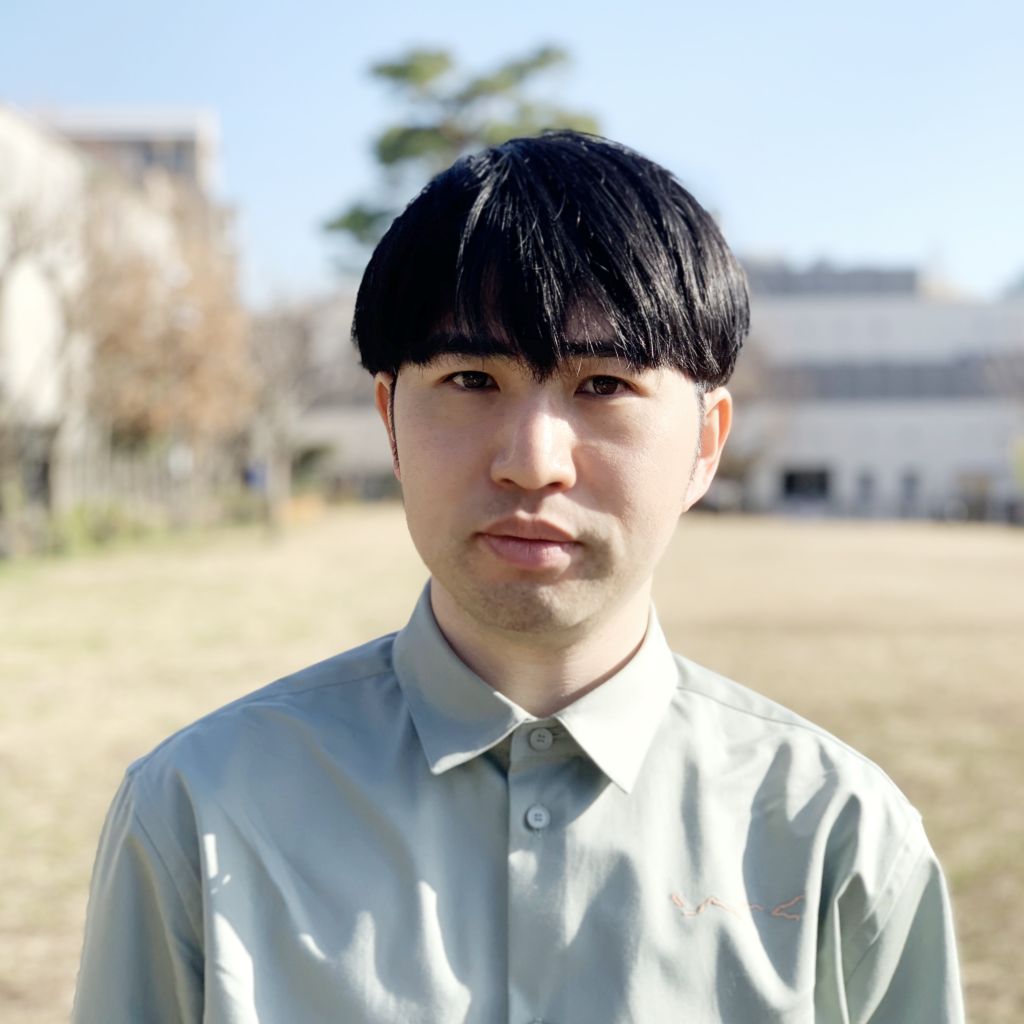
Hayashi Yosuke
UI designer, Programmer
Hayashi Yosuke is a Tokyo-based UI designer and Frontend Developer. After working at a media company and a game company, he became independent and co-founded HAUS with his colleagues. Yosuke specializes planning and development of interactive systems such as websites and application software for art exhibitions. Yosuke is interested in the influence of interfaces on creativity, which he examines through his works and prototypes. M.A. of Institute of Advanced Media Arts and Sciences, 2008. Part-time lecturer at Nagaoka Institute of Design, 2018–present.

